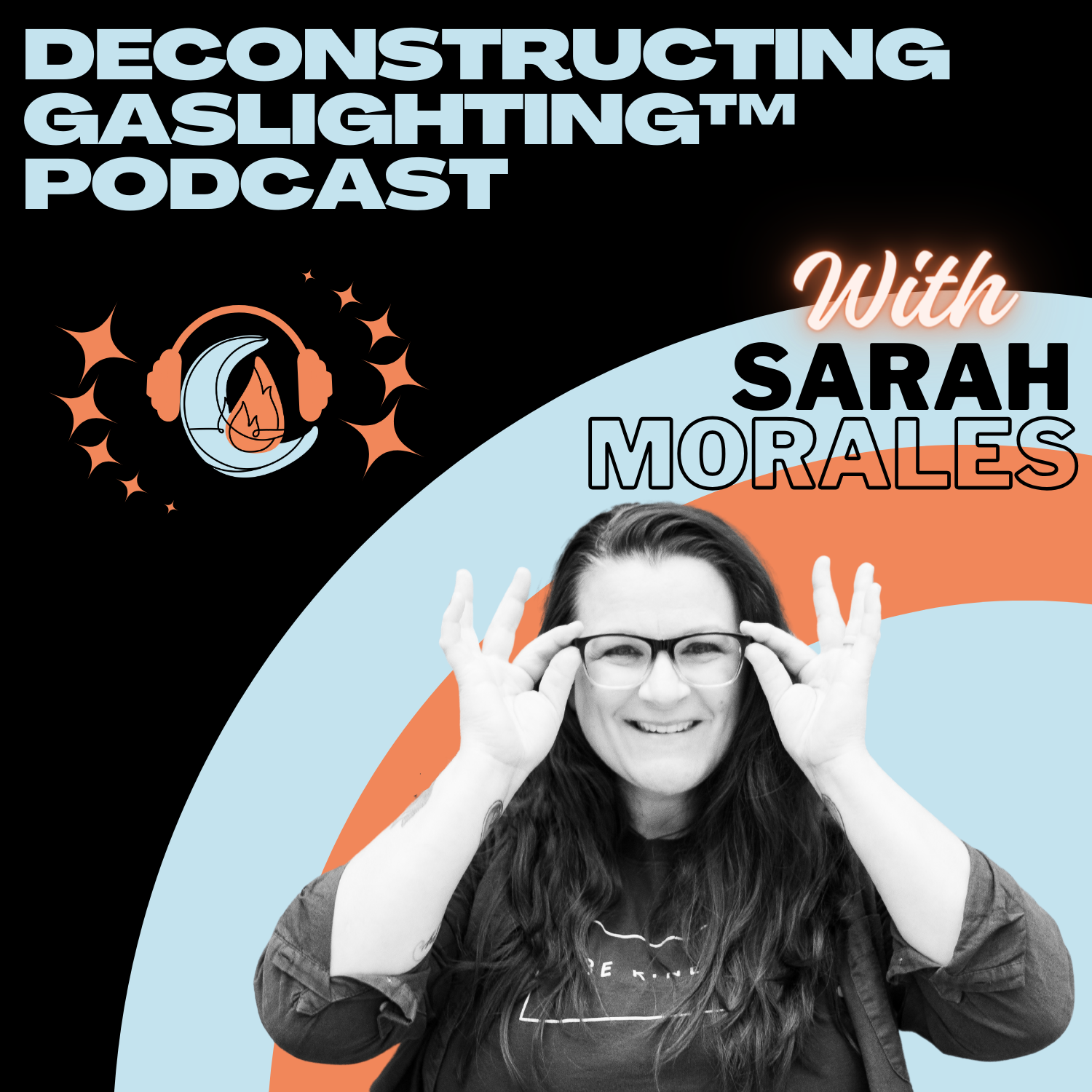"She was also my next door neighbor..."
Description
Most of us have some sort of understanding of what trauma is. And also, far too many of us understand betrayal… but did you know that there is this whole thing called betrayal trauma? For those who have experienced it, finding those two words together is a game changer. In today’s episode, Sarah and her guest will discuss how gaslighting is pretty much ALWAYS a part of the betrayal trauma experience.
Sarah is on mission to create a community – partially here, through this podcast, but also through a private, on-line community where there will be both a written forum AND live Q and A sessions with her. It’s called Deconstructing Gaslighting Seekers Community, and she’d love for you to join. Check out the details here.
Word of the day: Many people who have experienced betrayal in their intimate partnership don’t find the answers they need to understand what they’re feeling until they discover these two words: Betrayal Trauma. If someone close to you has ever broken your trust, you’ve likely felt the sting of betrayal. This pain can leave deep wounds. Now while any type of betrayal can cause emotional distress, betrayal trauma happens when someone you depend on to respect your needs and generally help safeguard your well-being violates the trust you’ve placed in them. This type of betrayal can cause lasting trauma. ALMOST ALWAYS, you will find gaslighting to be a main component of how the betrayal occurred.
Storytime: Sarah and Kenna discuss the dual-betrayal Kenna experienced when her then husband had an affair with, and then left her for, her next-door neighbor and best friend.
Deconstruction Zone: The main point today has to do with the tactic of inconsistency. Inconsistency has numerous “flavors”, or ways it can be experienced. It often depends on what other tactics it’s overlapping with… Kenna shared a variety of examples where her first husband would say something that was a criticism/put down, and then somehow twist it into it being how they were being helpful to her. This is an example of inconsistency overlapping with double-speak. This combo creates mind-games that can really undermine us. There’s a huge difference between someone who has our back/loves us/cares about us and is what we call an “intimae ally”.
Set Your Alarm: The double-speak/inconsistency duo is not even remotely about looking out for the other person – even IF the person says it is. When we are trying to “help” another person, there really shouldn’t be ANY put-downs involved. So, if you are experiencing this gaslighting tactic combo, I encourage you to slow down and give yourself permission to ask yourself a few questions:
Where did the put-down happen? How did this put-down make you feel?Do you think there is ANY validity to the point?
If so, then how would a loving ally bring the issue up to you?If not, then do I feel safe having a conversation with this person around how you do not see yourself this way, and to stop using put-downs to communicate their points. If it’s not safe to have that type of conversation, then try to work on boundaries/limits with this person.
As always, if you would like to share your story on Sarah’s podcast, She’d love to have you! Just click here!
And remember – it’s not about becoming who you want...
More Episodes
Published 10/08/24
Published 08/27/24
Published 07/16/24


